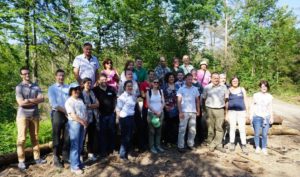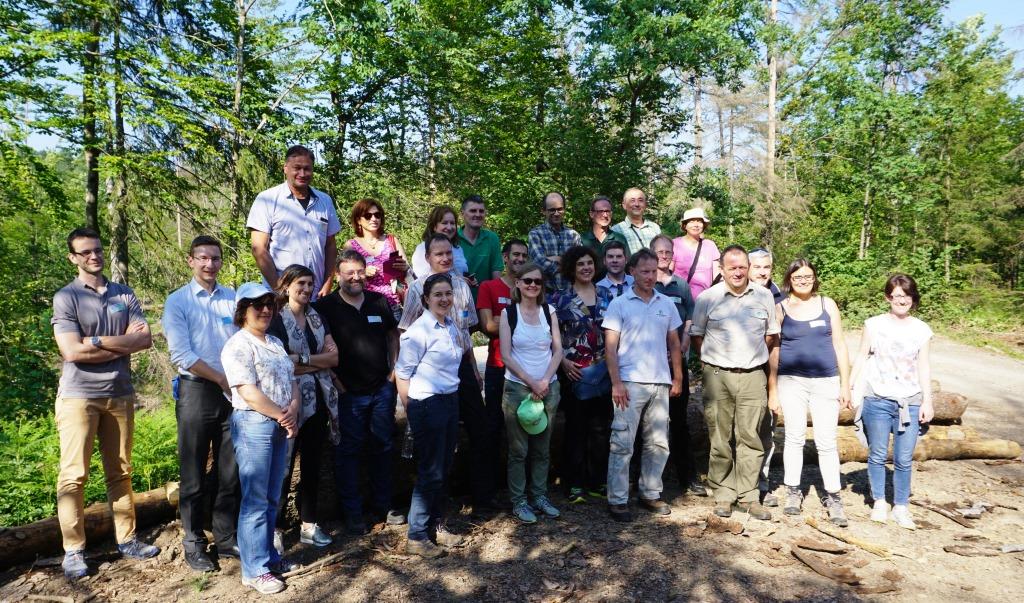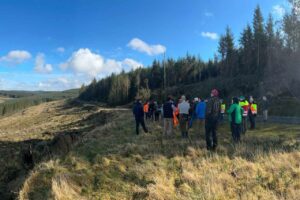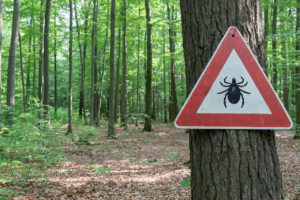Forest Research scientist Gail Atkinson explains how researchers and forestry practitioners from across Europe have united to find innovative ways to tackle climate change.
Our climate is changing and this is affecting our forests. If we want our forests to survive and thrive in future, we need to take action to enable them to adapt to changes. If we get this right, they will be able to continue to provide timber and a broad range of other forest products and services. However, we need to better understand how to best enable them to adapt to future conditions and how to fully realise the potential of trees to capture and store carbon to help mitigate climate change. These are complex challenges to integrate into forestry policy and practice.
The UK is not alone in taking an active interest in these issues. Other countries across Europe are also wrestling with similar concerns as we start to see evidence of the direct impact of climate changes on our forests. To address this, scientists, advisers and forestry practitioners from across Europe have united to form a new European Innovation Partnership (EIP) Focus Group. The group is one of several which have been set up through the EIP-AGRI EU policy initiative, which aims to foster innovation in agriculture and forestry. This Focus Group is specifically addressing ‘New Forest Practices and Tools for Adaptation and Mitigation of Climate Change’. I was one of twenty experts from eighteen countries in Europe chosen to participate from 2017 to 2018.
It is an especially active group who have already started work to take stock of the current state of play in research and practice to draw out possible solutions to the problems identified, such as changing rainfall patterns, and increasing risks of drought, fire and extreme events. They will suggest and prioritise innovative action and ideas for applied research and ideas for testing solutions in the field. They will also propose ways to share good practice.
The idea is that by collaborating across organisations and countries, a wide range of knowledge and expertise from the ground up will enable information to be developed for both forestry policy makers and forest management practitioners. It is anticipated that through the information and ideas we share, we will inspire and enable forest managers to adapt forests to changing climate patterns and to make decisions about how to best maintain or increase the carbon storage potential of forests.
Forest Research is participating to contribute knowledge that will enable us to develop innovative solutions for reducing the effects of climate change on forests across Europe. There has been much interest in the new adaptation demonstration areas we are establishing in Alice Holt Forest in Surrey. In turn we hope to able to bring back expertise to the UK that will support our efforts to adapt our forests to the changing climate and further develop actions leading to carbon storage Watch out for updates and for the final report from Focus Group 24 in June 2018!
Further information about the work of the group can be found on the EIP-AGRI website
Information on Forest Research’s work on climate change adaptation demonstration areas.
Atkinson (front left) and other members of FG24 at the first meeting in Slovenia. A visit to Hotedršica was led by the Slovenian Forestry Institute and Slovenia Forest Service to see the impact of ice-break and subsequent bark beetle attack which damaged 9 million m3 of wood, with loss of 240 million euros.
Disclaimer: The views and opinions expressed in this article are those of the author and do not necessarily reflect the views of the Institute of Chartered Foresters.







